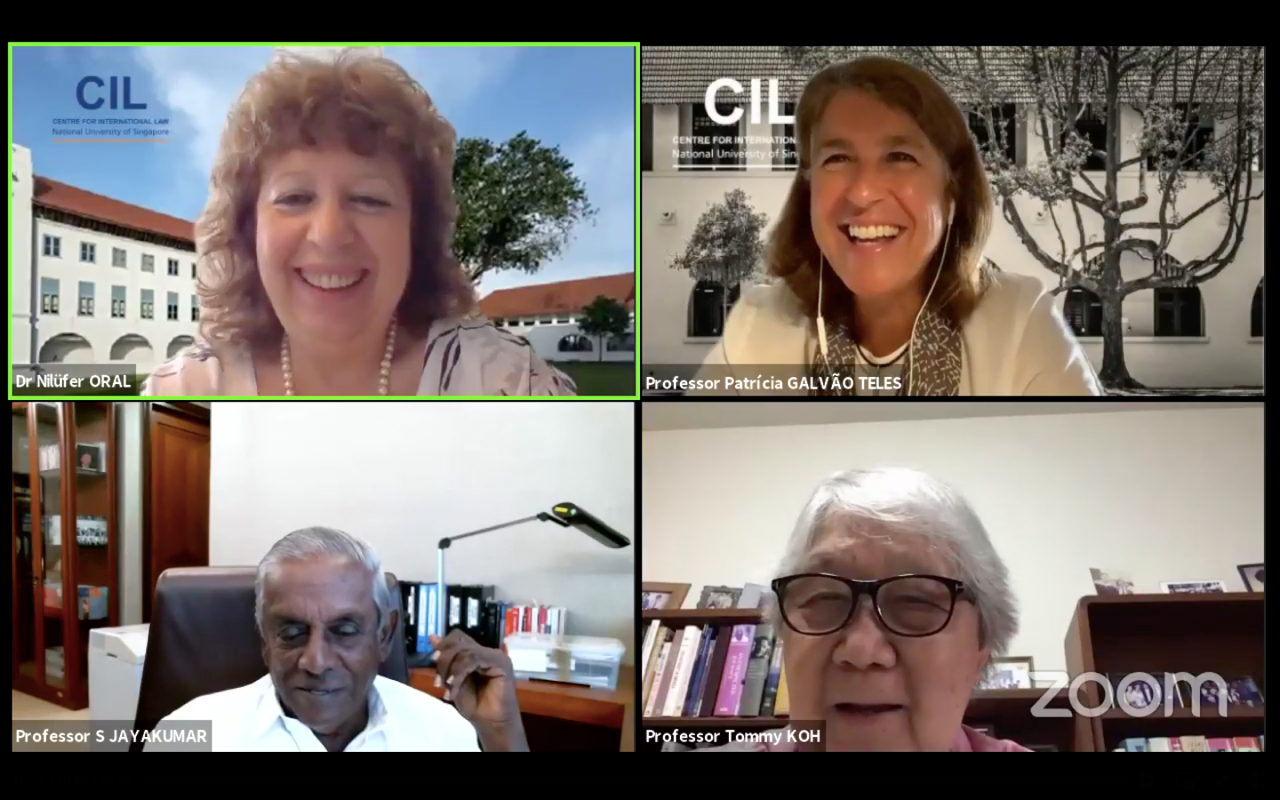Tackling climate change: How governments and the younger generation can play their part
Climate change is the most pressing issue for the world today, because failure to act by governments would be perilous for humanity and the planet, said Professor S Jayakumar, as he urged the younger generation around the world to “press, cajole, persuade and lobby their governments to do more on climate change”.
“The Paris Agreement in 2015 was a major step in the sense that it was a binding agreement. But the problem is that it depends on the pledges made by governments. And the assessments of organisations like the UN Environmental Programme, is that the pledges by governments are insufficient, and there is an emissions gap between where we are likely to be, and where we need to be,” said Prof Jayakumar, Chairman of the International Advisory Panel at the NUS Centre for International Law (CIL) and Pro-Chancellor of NUS.
Agreeing, Prof Tommy Koh added, “It is in the interest of the US, China and the world, for the two biggest emitters of greenhouse gases to work cooperatively and energetically to make the next COP event in Glasgow a success, and to be more ambitious than they have been in the past.”
The two were speaking at a fireside chat conducted by the NUS CIL, to mark the launch of the second edition of the CIL eAcademy of International Law. The virtual event attracted more than 200 participants from over 50 countries.
During the fireside chat, Prof Tommy Koh, who is Chairman of the Governing Board of CIL and Rector of NUS Tembusu College, as well as Prof Jayakumar addressed the topics of ASEAN, the COVID-19 pandemic, the UN Convention on the Law of the Sea, international dispute settlement, the lack of Asians in legal teams involved in international legal disputes, and their experience as international negotiators.
Launch of second edition of CIL eAcademy of International Law
The fireside chat launched the second edition of the CIL eAcademy of International Law, following the success of the first edition last year. The CIL eAcademy provides part-time online training for law students, academics, diplomats and lawyers, to advance their learning on international law, taught by some of the world’s best international lawyers.
This year’s CIL eAcademy has drawn interest from more than 130 participants from around 30 countries. They will be taking online courses delivered by more than 30 distinguished faculty members, including legal practitioners from around the world such as current and former judges of the International Court of Justice and other International Courts and Tribunals, members of the United Nations International Law Commission, ambassadors, and other top international law practitioners.
Prof Patricia Galvão Teles, co-Director of the eAcademy, shared, “This is a project that started last year during the pandemic, and was designed to make use of virtual means to fill the gap in training young scholars, diplomats and professionals from the region. The feedback from the participants of the first eAcademy was very positive and so we decided to conduct the eAcademy again this year.”
The CIL eAcademy will run from September through mid-December, and will include a guest lecture by a distinguished faculty member on each week’s topic that can be accessed on Wednesdays at 4pm on CIL’s Facebook page, and will thereafter be posted on CIL’s YouTube channel.
Reflections on virtual events and teaching
Reflecting on the shift to virtual events and learning caused by the COVID-19 pandemic, Prof Jayakumar said, “I think that COVID has had a silver lining for CIL in that CIL has had to harness technology to reach out to more people in more countries than was possible with physical events. Of course, you may have different views on whether to do virtual, physical or hybrid events. But I hope that virtual events will not stop. Because through virtual, you can broaden participation from the region and the world. It enables people who cannot afford to travel, as well as people with disabilities to participate. But I am also aware of the downside of virtual, is that the person-to-person networking is lost. So maybe the best solution will be hybrid events.”
Prof Jayakumar added, “I give credit to Dr Nilufer Oral for taking over the Directorship of CIL just before the outbreak of COVID-19, and I want to congratulate Nilufer and her team for steering CIL through this period with no lessening of the quality or quantity of events, and for their expert use of technology.”
By the NUS Centre for International Law



